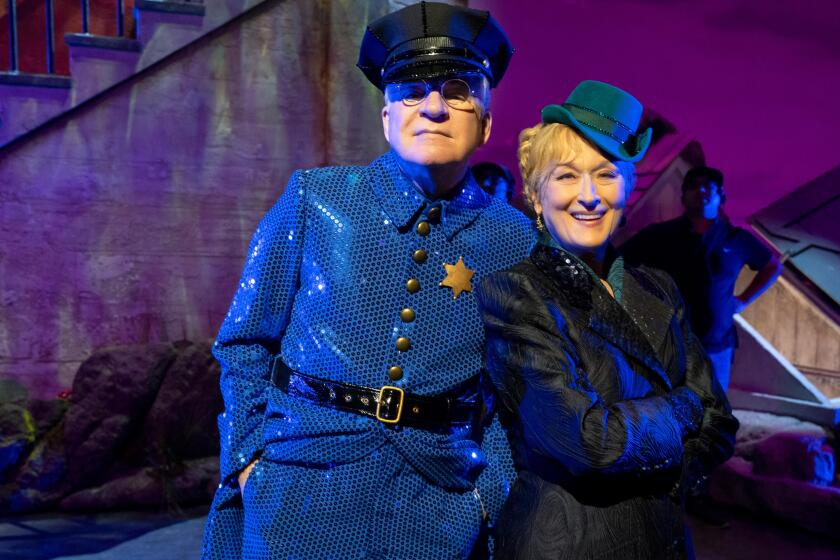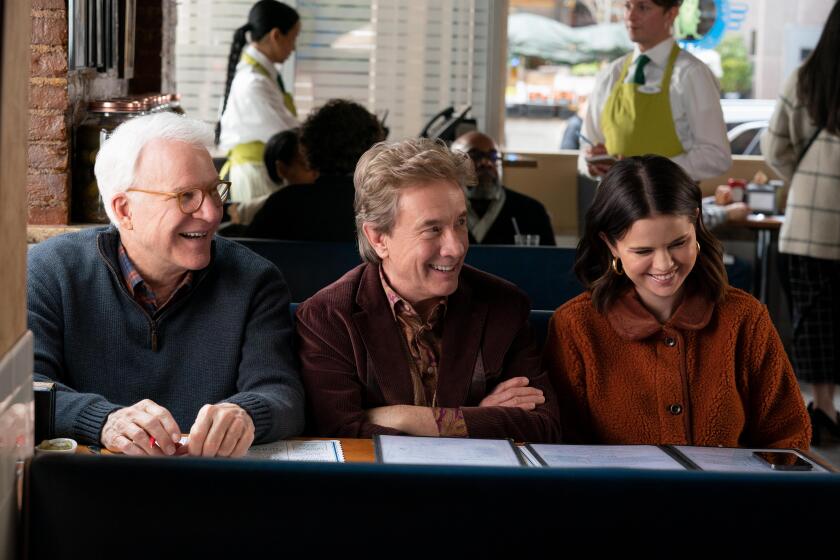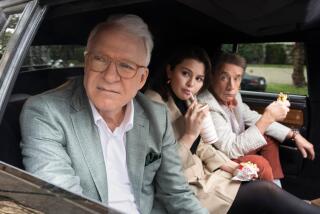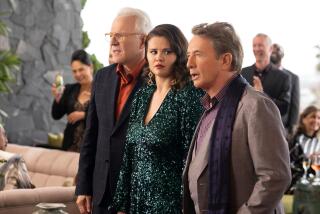That time Meryl Streep reached out and said she wanted to work with me

“Hey, we just got this email — Meryl Streep wants to Zoom with us about working together. Should we tell her, ‘Well, you know, we do have this TV show’?”
“Um, yes, sure, absolutely, yes, of course??!”
This was an exchange between Steve Martin, Martin Short and me. A few days later came the text: “Hey, we just Zoomed with Meryl. She’s in. Do you have something good for her?”
I really hope Meryl knows what can happen to people when she says she wants to do your project. For me, it was a thunderbolt of thrill followed by pure abject terror that we might disappoint or “not have something good for her.”
Series co-creator and showrunner John Hoffman breaks down Season 3, including Meryl Streep’s guest arc, a panic-inducing finale and that Season 4 cliffhanger.
The thing I clung to was that a few days before that first reach-out from Meryl, I’d spent a day with [executive producers] Dan Fogelman and Jess Rosenthal brainstorming big-picture ideas for Season 3. We talked about opening it all on a new character, a potential love interest for Oliver Putnam, and how we could show the life of a New York City actress who is so talented but spent decades hoping for something that never came — a career-changing break. I remember saying to Dan and Jess, “Well, you know who the perfect person to cast here is, right? The most celebrated actress of our time playing this part. I mean … right?” The guys looked at me, “Yeah, John, that’s right. Let me know how that works out.”
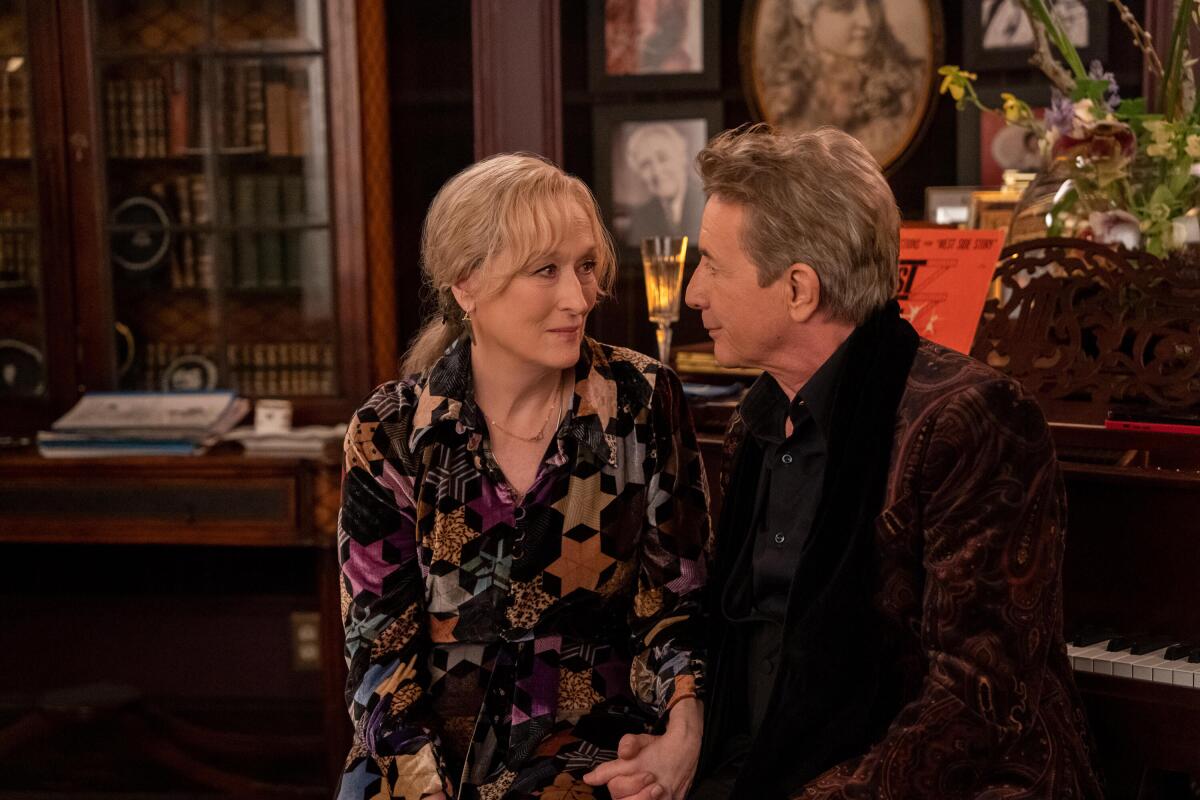
Like most of us who’ve worked in this business (and like Loretta Durkin, this new character we were now going to tailor for Meryl), I’ve had a career of many whopper disappointments. Getting close after years — writing, researching, pouring my heart into a screenplay or pilot — only to have it end with a “Nope, not gonna happen.” I’m not in any way “pie in the sky” about these realities, but I also recognize and actually trust in a belief that sometimes good things happen in ways that feel predetermined and fateful. With this third season of our half-hour comedy, that seemed to keep happening over and over and over again. No matter how many times we pushed — OK, maybe I pushed — toward the potential, it could also all go careening off the cliff.
We were given the gift of a dream cast for a half-hour television comedy with mysterious twists and turns, and we decided that if Oliver Putnam’s character was steering the ship — as he had to be in this season, to save his beloved return to Broadway — we had to swing like Oliver would, by turning his shot into a musical. We decided to triple down on the shot we were given.
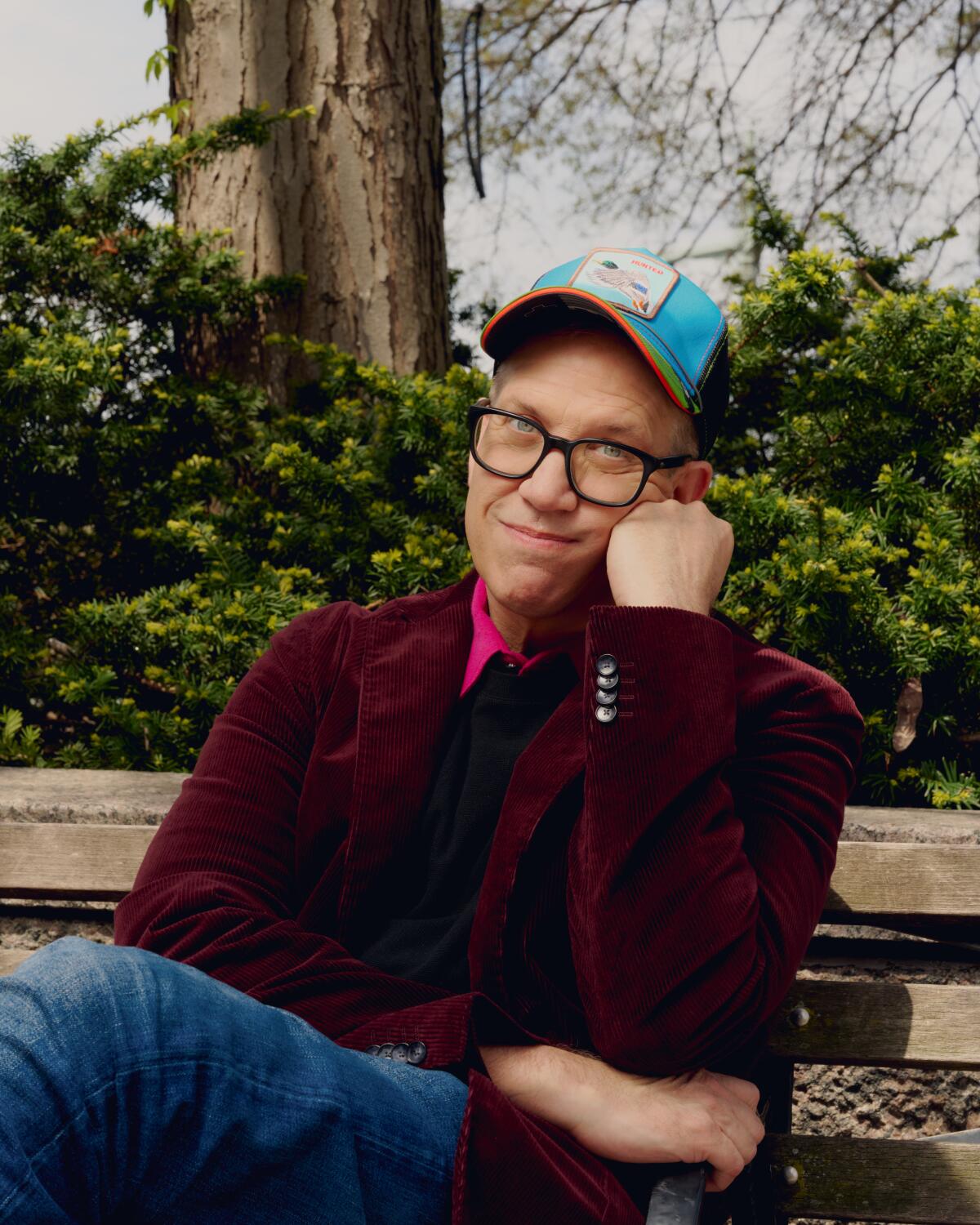
“Yes, you’re going to sing too, Meryl. And Steve. And Marty. And Selena [Gomez], you’re not getting out of this; we have a fantasy number for Mabel. And Paul Rudd.” I remember Paul’s face when I told him he’s going to have a big, climactic duet with Meryl even though his character is dead. “Does that sound too crazy?” I held my breath, hoping he wouldn’t run out of the room. Instead, he got that glint we all love in his eye: “I’m going to sing with Meryl Streep? That may be the best sentence I’ve ever said out loud.”
By another twist of fate, Sas Goldberg, with whom I would co-write our first episode of the season, was close friends with my big-wish pick for composers of the musical within our show, Benj Pasek and Justin Paul. They hopped aboard via one text from Sas. Then they brought along their own murderers’ row of Broadway friends to help, in Marc Shaiman and Scott Wittman, Michael R. Jackson and Sara Bareilles. Are you kidding me?
Hulu has renewed ‘Only Murders in the Building’ — starring Steve Martin, Martin Short and Selena Gomez — for a fourth season. Its striking stars didn’t comment.
At some point while filming in the stunning United Palace theater New York’s Washington Heights, I was sitting in the middle of the orchestra when Meryl came by in a preposterously delightful small chapeau (her nanny costume for the musical), and she sat down beside me and said, “Boy, you really like a big swing, don’t you?” I think I laughed, and then I said what feels maybe like the point of this essay: “Well, what’s the point of having you and this bonkers group of super-talents all in one season if you’re only gonna go for a base hit?”
Buoyed by a strong touch of the fates and a colossal collection of madly talented support, we all took a swing together — and that “something good for her” became “something we’ll all never forget and loved making so damn much as we made it sing.”
More to Read
From the Oscars to the Emmys.
Get the Envelope newsletter for exclusive awards season coverage, behind-the-scenes stories from the Envelope podcast and columnist Glenn Whipp’s must-read analysis.
You may occasionally receive promotional content from the Los Angeles Times.
